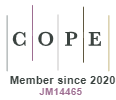The myths of legal positivism
DOI:
https://doi.org/10.5585/rtj.v12i1.22522Keywords:
legal positivism, myths, principlesAbstract
Legal positivism, as a set of theses necessarily defended or assumed by all of those who flaunt its colors, has being commonly criticized based on errors or myths, building up a “straw man” of what this philosophical tradition actually is. In this paper, we proport to recuperate the central theses of legal positivism, through literature review, defining them by the artifact thesis and the separability thesis, with contingent presence of the source thesis and/or the conventionality thesis. With that settled, we go on to demonstrate that the idea of a “outdated” positivism, unable to account for legal principles, is false, as well as the picture of a legal positivism that implies some specific interpretative methodology, such as textualism or originalism. Through this article, we expect to clear or even recover the debate about legal positivism, specially in Brazil, reviving the theses that are really defended by this century-old philosophical tradition, distancing ourselves from the “straw man” created.
Downloads
References
ADLER, Matthew; HIMMA, Kenneth Einar. The Rule of Recognition and the U.S. Constitution. Oxford: Oxford University Press, 2009.
ALCOFORADO, Paulo. A Teoria da Linguagem Ordinária. In: SOUZA FILHO, Danilo Marcondes de (org.). Significado, Verdade e Ação. Niterói: EDUFF, 1986.
ALEXANDER, Larry; SCHAUER, Frederick. Law's Limited Domain Confronts Morality's Universal Empire. Wm. & Mary Law Review. Vol. 45. I. 5 (Law and Morality Symposium), 2007. Disponível em: https://scholarship.law.wm.edu/wmlr/vol48/iss5/4. Acesso em: 2nov2021.
AUSTIN, John Langshaw, Quando dizer é fazer. Tradução: Danilo Marcondes de Souza Filho. Porto Alegre: Artes Médicas, 1990.
AUSTIN, John. The Province of Jurisprudence Determined. London: John Murray Press, 1832.
BOBBIO, Norberto. O Positivismo Jurídico: lições de filosofia do direito. Tradução: Márcio Pugliesi. São Paulo: Ícone, 2006.
COLEMAN, Jules (org.). Hart’s Postscript: essays on the postscript to the concept of law. New York: Oxford University Press, 2005.
DWORKIN, Ronald. Taking Rights Seriously. Cambridge: Harvard University Press, 1977.
DWORKIN, Ronald. O Império do Direito. Tradução: Jefferson Luiz Camargo. 3. ed. São Paulo: Martins Fontes, 2014. (Justiça e direito).
GARDNER, John. Legal Positivism: 5 1/2 Myths. American Journal of Jurisprudence. Oxford: Oxford University Press, vol. 46. 2001.
GRAYLING, Anthony Clifford. Wittgenstein: a very short introduction. New York: Oxford University Press, 2011.
HARRIS, James F. A New Look at Austin's Linguistic Phenomenology. In: Philosophy and Phenomenological Research. JSTOR. vol. 36. no. 3. 1976, Disponível em: www.jstor.org/stable/2106924. Acesso em: 2 nov. 2021.
HART, Herbert L. A. The concept of law. 3. ed. Oxford: Oxford University Press, 2012. (Clarendon law series).
HART, Herbert L. A. Law, liberty, and morality. Stanford: Stanford University Press, 1962.
HIMMA, Kenneth Einar. Morality and the nature of law. Oxford: Oxford University Press, 2019.
HORTA, José Luiz Borges. História do estado de direito. São Paulo: Almeida, 2011.
KELSEN, Hans. Teoria pura do direito. Tradução: João Baptista Machado. São Paulo: Martins Fontes, 2012.
KELSEN, Hans. The Pure Theory of Law and Analytical Jurisprudence. Harvard Law Review, Boston, Harvard Law Review Association. Vol. 55. n. 1. 1941.
KELSEN, Hans. A paz pelo direito. Tradução: Lenita Ananias do Nascimento. São Paulo: Martins Fontes, 2011.
KRAMER, Matthew H.; GRANT, Claire; COLBURN, Ben; et. al. The Legacy of H.L.A. Hart: Legal, Political and Moral Philosophy. Oxford: Oxford University Press: 2008.
LACEY, Nicola. A Life of H.L.A. Hart: The Nightmare and the Noble Dream. Oxford: Oxford University Press, 2004.
LEITER, Brian. Beyond the Hart/Dworkin debate: The Methodology Problem in Jurisprudence. Public Law Research Paper. Austin: University of Texas Law. no. 34. 2005. Disponível em: https://ssrn.com/abstract=312781. Acesso em: 2 nov. 2021.
MACCORMICK, Neil. H.L.A. Hart. 2. ed. Stanford: Stanford University Press. 2008. (Jurists: profiles in legal theory).
MARMOR, Andrei. Philosophy of Law. Princeton: Princeton University Press, 2011.
MORESO, José Juan. Legal defeasibility and the connection between law and morality. In: BENTRÁN, Jordi Ferrer; RATTI, Giovanni Battista. The Logic of Legal Requirements. Essays on Defeasibility. Oxford: Oxford University Press, 2012
MORRISON, Wayne. Filosofia do direito: dos gregos ao pós-modernismo. Tradução: Jefferson Luiz Camargo. 2. ed. São Paulo: Martins Fontes, 2012.
PARKER-RYAN, Sally. Ordinary Language Philosophy. Internet Encyclopedia of Philosophy. Disponível em: https://www.iep.utm.edu/ord-lang/. Acesso em: 2 nov. 2021.
RAZ, Joseph. Ethics in the Public Domain: essays in the morality of law and politics. Oxford: Oxford University Press, 1994.
SCHAUER, Frederick. Thinking like a lawyer. London: Harvard University Press, 2009.
SHAPIRO, Scott J. The “Hart-Dworkin” Debate: A Short Guide for the Perplexed. In: Public Law and Legal Theory Working Paper Series, Ann Arbor: University of Michigan Law School, n. 77, 2007. Disponível em: http://ssrn.com/abstract=968657. Acesso em: 2 nov. 2021.
SHAPIRO, Scott J. Legality. Cambridge: The Belknap Press of Harvard University Press, 2011.
SOPER, Philip. Legal theory and the obligation of a judge: the hart/dworkin dispute. Michigan: Michigan Law Review, v. 75, i. 3, 1977.
WALUCHOW, Will J. Inclusive legal positivism. Oxford: Oxford University Press, 1994.
WALUCHOW, Will J. Legal positivism, inclusive versus exclusive. In: CRAIG, Edward (ed.). Routledge Encyclopedia of Philosophy. London: Routledge, 2008.
WITTGENSTEIN, Ludwig. Investigações filosóficas. Tradução: João José R. L. de Almeida, Campinas: Editora Unicamp, 2017.
Downloads
Published
How to Cite
Issue
Section
License
Copyright (c) 2023 Dos autores

This work is licensed under a Creative Commons Attribution-NonCommercial-ShareAlike 4.0 International License.






